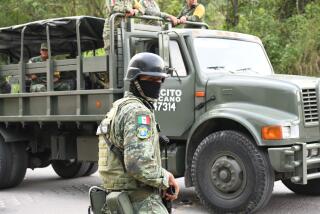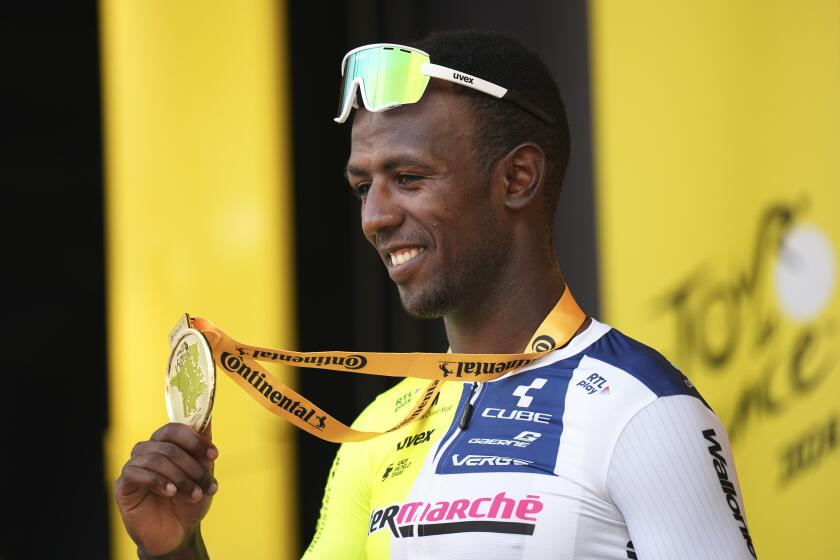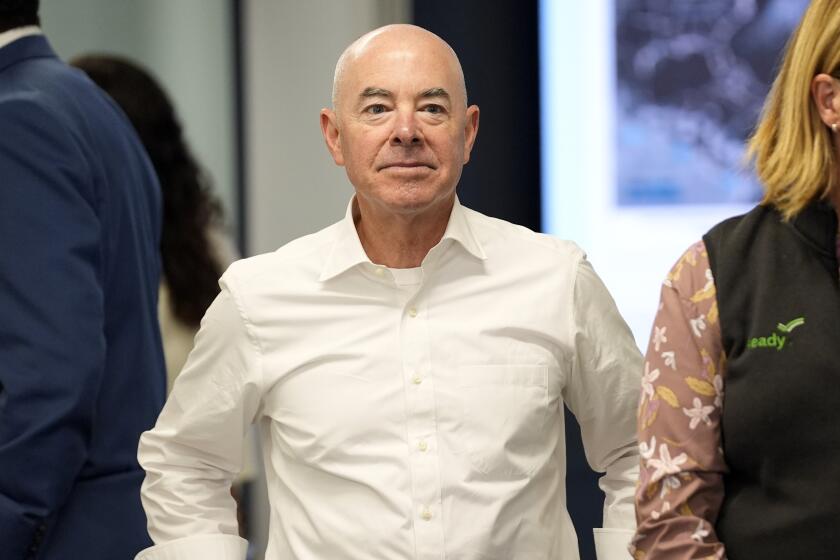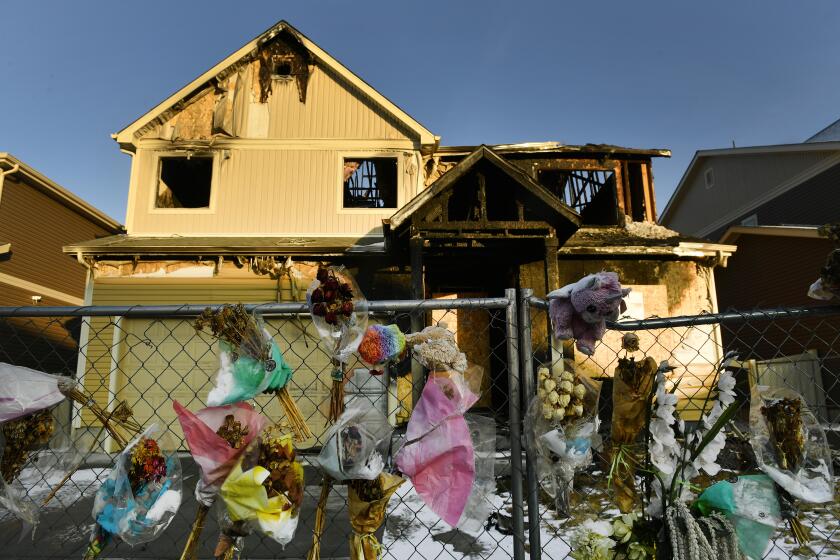Gunmen Kill Ex-Mayor of Medellin
Several gunmen Monday assassinated a former mayor of Medellin who had protested against violence by drug traffickers, signaling a dramatic escalation in the three-week-old war between the government and the cocaine cartels.
The attackers fired at least eight shots from 9-millimeter pistols into Pablo Pelaez Gonzalez as he rode in a beige BMW to his metal-can factory in Medellin, police said. The gunmen also killed the ex-mayor’s driver and wounded a bodyguard before fleeing on foot.
Pelaez Gonzalez served as mayor of Colombia’s second-largest city from May, 1984, to August, 1986, and had remained active since then in the ruling Liberal Party. He was the first ranking politician from the ruling party to be killed since President Virgilio Barco Vargas declared war on the traffickers Aug. 18 after the murder of Carlos Luis Galan, the Liberal Party’s front-running presidential candidate, at a campaign rally.
Declared ‘Total War’
The traffickers responded with their own declaration of “total war” Aug. 24 and have set off at least 40 bombs in Medellin and several more in Bogota. But until Monday, they had not resorted to killing another major political figure. Pelaez Gonzalez’s killing ended speculation that the traffickers were avoiding more such murders because Galan’s death had brought the government’s wrath on their heads for the first time.
Barco declared emergency powers, rounded up thousands of trafficking suspects and seized planes, boats and homes of known traffickers after Galan’s death. The president also reinstated the extradition treaty with the United States and sent a leading Medellin cartel financier, Eduardo Martinez Romero, to stand trial. Martinez Romero pleaded innocent Monday to money-laundering charges in Atlanta.
Was Not a Crusader
Pelaez Gonzalez had not been known as an anti-drug crusader during his tenure in Medellin, a city of 2 million where traffickers exert heavy influence and wield vast economic power. His main policy effort was a “Love for Medellin” campaign, which relied on TV commercials to improve Medellin’s tarnished image in Colombia and overseas, said one journalist who covered his tenure.
“It focused on image and didn’t go to the root of the problem, which was--and is--drug trafficking,” said the reporter, who asked that his name not be used. “The quick money from cocaine, meanwhile, was changing the whole mentality.”
After leaving office, Pelaez Gonzalez returned to private industry but stayed active in the provincial Liberal Party organization. His colleague, provincial governor Antonio Roldon Betancur, was killed by a car bombing July 4. Pelaez Gonzalez presided over a “Day of Reflection” a month later, in which 5,000 business leaders met and issued a document condemning the violence, particularly by drug traffickers, that was ravaging the city.
‘A Change in Attitude’
“His role reflected a change in the attitude of the people toward the (drug) mafias,” said one journalist from the Bogota daily El Espectador, itself the target of a powerful car bomb on Sept. 2. “People are now talking openly against them. Before, the people didn’t care or were too afraid to act.”
Two weeks after Medellin’s Day of Reflection, Galan was killed in Bogota and the Liberal Party government unleashed its campaign. When the cartel’s alleged “finance minister,” Martinez, was flown to the United States, “the Extraditables”--the most-wanted drug lords--publicly threatened to retaliate against the government, judges and security forces.
Pelaez Gonzalez and other Liberal Party leaders and industrialists had received repeated death threats in recent weeks. The traffickers in recent days also began attacking and burning homes of prominent citizens connected with the government.
On Monday, a house belonging to Andres Restrepo Londono, head of the government oil company, was burned down. A day earlier, a group of attackers killed the foreman and set fire to the ranch of the director of the Agrarian Reform Institute, Carlos Ossa Escobar, who has urged that properties confiscated from drug lords be redistributed to landless peasants.
Reason Still Unclear
Medellin police said it was unclear whether the ex-mayor’s killing was a direct response to the extradition or simply that Pelaez Gonzalez was a symbol of the official party and its crackdown on the traffickers.
Juan Gomez Martinez, Medellin’s current mayor, ordered a nighttime curfew in the city extended indefinitely as a result of the killing.
In Washington, State Department spokesman Richard Boucher called the murder “deplorable, reprehensible.” The United States is sending $65-million-worth of supplies, including planes, helicopters, arms and communications gear, to help Colombia wage the war.
Justice Minister Monica de Grieff, herself a target of death threats, returned from a 13-day stay in Washington on Sunday night and met for two hours with Barco on Monday. She declined to comment after the meeting.
There has been widespread speculation that De Grieff, 32, will resign soon, perhaps waiting some weeks to avoid the appearance of a government defeat at the height of the campaign. Soldiers have raided scores of suspected drug traffickers’ properties in recent days in the districts surrounding Medellin, seizing a number of them under the emergency powers.
More to Read
Start your day right
Sign up for Essential California for news, features and recommendations from the L.A. Times and beyond in your inbox six days a week.
You may occasionally receive promotional content from the Los Angeles Times.






